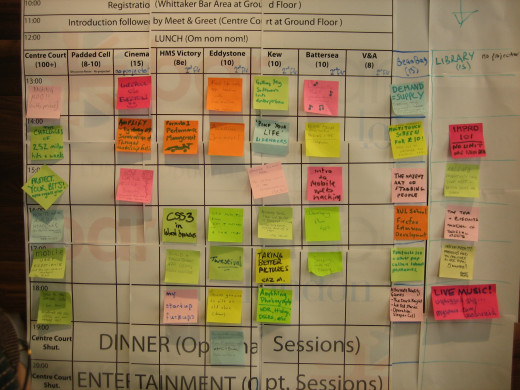Preparation Tips for Writing a Novel

Writing a Book: First Steps
Maybe you've had a few ideas swirling around in your head for a while, or maybe you woke up from a dream last night and were suddenly inspired to write a novel. It may be tempting to sit down and start writing your book immediately, but a book, like most other things in life, requires planning to reach successful fruition.
Before you put pen to paper, consider writing an outline, doing preliminary research on the market, and setting goals and milestones to maintain your motivation.
With the following preparation tips for writing a novel, you will be well on your way to seeing your name on a cover!
Tips for Outlining Your Novel
Writing an Outline for Your Novel
A novel can be sparked by the idea for a certain character, or a certain scene or theme--but that character, scene, or theme won't fill the 50,000 words it takes to make a novel. You'll have to develop a compelling, manageable plot as well.
If you just sit down and start writing before considering the beginning, middle, and end of your story, and how all three work together to make one coherent piece of writing, you'll likely get bogged down halfway through and experience frustration, if not writer's block.
Take the time before you begin writing to prepare an outline of your novel. In the outline, go through the major plot points and which characters are involved in each; share your outline with a friend or family member to get their opinion on how well it works in terms of sequence and action.
Also in the outline, write brief summaries of your main characters--their personalities, their motivations, and a little of their history. Your characters won't be believeable if they are inconsistent, so you can refer back to your character summaries as your novel progresses to make sure the characters populating your novel are staying true to themselves.
Writing an outline will also help you in instances of writer's block--if you're stuck on a scene at the beginning of the book, and have a good outline, skip ahead and write a scene in the middle or the end--that might give your brain the push it needs to amp up the creativity.

Doing Market Research for Your Book
Here's a hard truth: publishing houses accept books they think will make money. No matter how amazing your novel may be, if it's not a good fit for the market, a publishing house will not accept it. They are about profits when it comes down to the bottom line.
If you're writing just for the joy of it and plan to self-publish or don't care if you get published, then you won't need to do market research. But, if you do want to be published at a traditional house, do your market research first.
Gather a list of books that are similar to yours, in the same genre for example, and analyze how well those books have done. (Keep this list for your book proposal, which you will write when you are done with the novel.) If you can access numbers of copies sold and profits, that will help too.
Think about when Stephenie Meyer wrote the Twilight series (all personal opinions on its merits aside); books about vampires were moderately popular, but Anne Rice and Charlaine Harris had primarily conquered the market in their own unique ways. Then out comes Twilight, and the shelves are filled with vampire/human romances. Now that the shelves are glutted, your YA romance is more likely to succeed if it takes a different angle--ditch the vampire and find some other brooding creature of the night to sub in.
Market research can make the difference between your book's acceptance and its denial.

Setting Goals and Milestones for Your Novel
Another important preparation tip for writing a novel is to set goals and milestones to track your progress and to maintain your motivation.
First, think about when you'd like to be done with your first draft. A month from now? Two months from now? Be realistic--if you're writing a historical novel that requires research, you won't be done in three weeks. If you're writing a romance novella, you may be done even more quickly than that.
Take out your planner or use your Outlook Calendar and picks dates on which you'd like to reach certain milestones. Mark them prominently and track your progress--treat yourself when you reach one.
It's easy for weeks and then months to slip by unproductively if you don't goals. Paying attention to your progress (or lack thereof) will help you reach your goal: a finished novel.
Ready, Set, Write Your Novel!
Now that you've accomplished your preparatory steps for writing your novel, you're ready to get started! Proper preparation before beginning the writing process can make the difference between success and failure, so plan carefully! Good luck writing.








